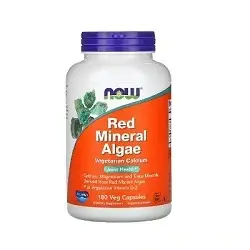Seaweed and algae:
 Seaweed and algae are kind of marine plants that are increasingly being recognized for their potential health benefits. They are a rich source of nutrients, including minerals, vitamins, and antioxidants, and have been linked to a variety of health benefits.
Seaweed and algae are kind of marine plants that are increasingly being recognized for their potential health benefits. They are a rich source of nutrients, including minerals, vitamins, and antioxidants, and have been linked to a variety of health benefits.
Health benefits:
Improved thyroid function: Seaweed is an excellent source of iodine, a mineral which is necessary for thyroid function. Iodine deficiency may lead to a variety of health problems, including hypothyroidism, goiter, and developmental problems in children.
Reduced risk of heart disease: Seaweed contains compounds that can help to reduce the risk of heart disease. These compounds include omega-3 fatty acids, which can help to reduce LDL (bad) cholesterol and triglycerides. It also contains antioxidants that may help to protect blood vessels from getting damaged.
Improved blood sugar control: Seaweed can help to improve blood sugar control in people with diabetic problem. This is because seaweed contains compounds that may help to reduce the absorption of sugar into the bloodstream.
Weight loss: Seaweed is a low-calorie, high-fiber food that may help you feel full and satisfied. This may help you to eat less food and lose weight.
Improved gut health: Seaweed is a good source of prebiotics, which are fibers that may assist to promote the growth of beneficial gut bacteria. This may assist to improve your digestion and overall gut health.
Reduced risk of cancer: Some studies have revelaed that seaweed can help to lower down the risk of certain types of cancer, such as breast cancer and colon cancer. This is because seaweed contains compounds that can help to protect cells from getting damaged.
Types of Seaweed and Algae: There are different types of seaweed and algae, each having its own unique nutritional profile and health benefits.
Some of the most common types of edible seaweed and algae include:
Nori: This type of seaweed, commonly used in sushi and other Japanese dishes, is a good source of vitamin A, iodine, and iron.
Wakame: This type of seaweed is popular in soups and salads. It is a good source of magnesium, calcium, and vitamin K.
Kombu: This type of seaweed is used in dashi which is a Japanese soup stock. It is a good source of B vitamins, iodine, and potassium.
Dulse: This type of seaweed has a salty and smoky flavor. It is a good source of vitamin C, iron, and protein.
Spirulina: This type of blue-green algae, a popular superfood, is a good source of iron, protein, and antioxidants.
Chlorella: This type of blue-green algae, another popular superfood, is a good source of vitamin C, protein, and omega-3 fatty acids.
How to eat Seaweed and Algae:
Seaweed and algae can be eaten in a variety of ways. They can be eaten raw, cooked, dried, or powdered. Seaweed can be added to salads, soups, stews, and stir-fries. It is also be used as a wrapper for sushi and other Japanese dishes. Blue-green algae, such as spirulina and chlorella, can be added to juices, smoothies, and yogurt.
Precautions:
Seaweed and algae are generally safe to eat, but a few things should be kept in mind. Some types of seaweed may contain high levels of iodine, which may be harmful to people having thyroid problems. It is always recommended to consult to your health professional before eating seaweed if you have any health concerns.
Overall, seaweed and algae are a healthy and nutritious food that offers a variety of health benefits. They are a good source of minerals, vitamins, and antioxidants, and have been linked to a wide range of health benefits, including reduced risk of heart disease, improved thyroid function, and improved blood sugar control.
Plant based Oils and seeds:
Vitamins:
Other beneficial natural products:
